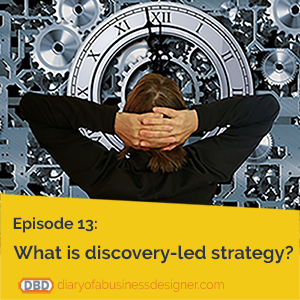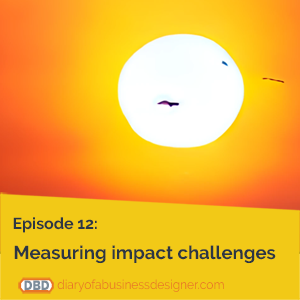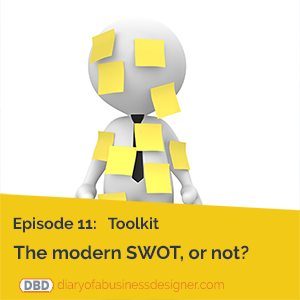We all read about great ideas that never get traction. Sadly, many individuals, start-ups and corporates have expensive lessons however in some cases, you can work your way out of the sunk cost problem by converting your approach into ‘discovery-led strategy’ forward.
Support Diary of a Business Designer
Key takeaways
The trap of significant losses can be reduced with some methodical testing and planning.
What tools do you use when:
- Desiring to move into unknown territory, how does one develop a robust planning methodology?
- With such an unpredictable future, how do organisations allow themselves to be bold enough to pivot quickly?
- Or when faced with disruptive competition or declining markets, how do you let go of the past and explore a new future?
- And when asked to lead innovation, the usual corporate demand is for a definitive business case to follow .. an impossible ask, how do you respond?
- Or if you have built it, and they didn’t come .. where can you move next?
We don’t talk about DISCOVERY-LED STRATEGY enough.
How do you salvage a sunk cost of a solution built which is looking for a problem? All the words of wisdom are to avoid this error in the first place, yet still it happens .. what do you do next?
Firstly, a bit more definition, a discovery-led strategy:
It is not a one-off project, nor a sprint, or consulting piece, not the ‘product-market fit framework’ used by capital investors, nor the ‘Lean canvas customer discovery’ used by startups.
It is a ‘solution looking for a problem’, a strategy whose sole purpose is to find a market for the solution. A strategy to stay fluid and follow the money for future developments. It is an open-ended process, of try, test, fail, until a niche or crevice is discovered and prised into.
As you can see, a very difficult stance for most business managers to accept.
The key ingredient for discovery-led strategies .. is to maintain a firm and structured approach in the process .. including and not limited to:
- Assumptions testing
- Methodical process towards testing
- Setting test and exploration goals
- Milestones, deadlines, timelines
- Triggers / sensitivities
- Measures of success
- Decision making criteria
Yet many organisations and startup entrepreneurs still jump to conclusions, the old fashion way of believing the individual knows best. The difficulty comes in the self-discipline of the process.
In my 20+ organisations career, I have landed in many businesses with dire strategic problems, this tends to be my career journey. I this podcast I provide 5 examples where I have used Discovery-led Strategy
Examples 1&2: were startups who invested in building a solution based on the entrepreneurs’ terrific ideals. Both built their solution and both struggled to connect it to the problem, overtime traction and revenue generation were non-existent.
Examples 3&4: two different organisations, both well established, and their multi-$m revenue relied primarily on fixed term funding for the provision of healthcare services into a define audience base on behalf of their primary funder. Both over time, with increased competition, changing regulation, shifting consumer expectations and lethargy to innovate and evolve, had reached a critical end-of-life point and near immediacy of lost funding due to declining value propositions.
Example 5: was a the classic corporate idea which built a white elephant .. ie a solution with no evidence of market need, it gained no traction and was retired to the sunk cost write-off garage to gather dust.
Hopefully this gives you the energy to speak up about Discovery-led strategies. As long as the obstacles are not overwhelming from the getgo, and there is a willingness for patience, disruption and supporting change .. a diligent process will find a path forward.
Good luck!
Books Amazon
- Testing Business Ideas: A Field Guide for Rapid Experimentation
- The Lean Startup– Eric Reis
- Business Model Generation – Alexander Osterwalder and Yves Pigneur
- The Three-Box Solution – Govindarajan, Vijay
- The End of Competitive Advantage: How to Keep Your Strategy Moving as Fast as Your Business, by Rita Gunther McGrath
Timestamps:




0 Comments